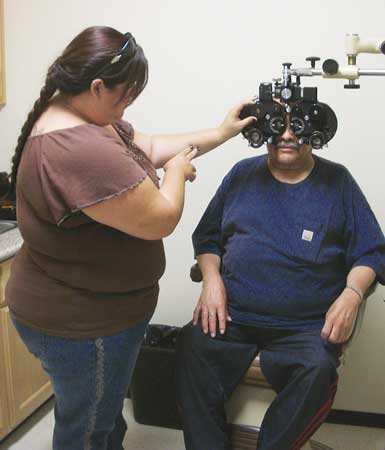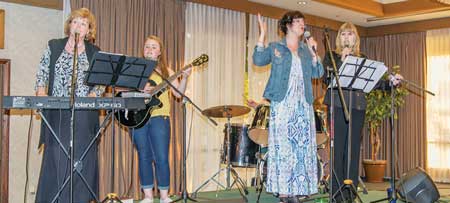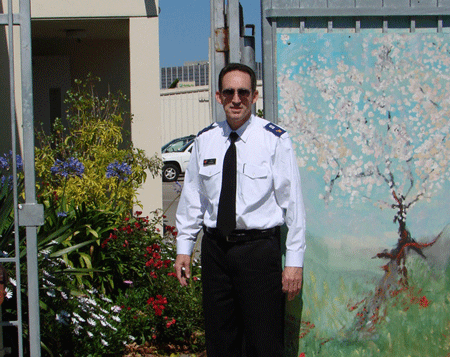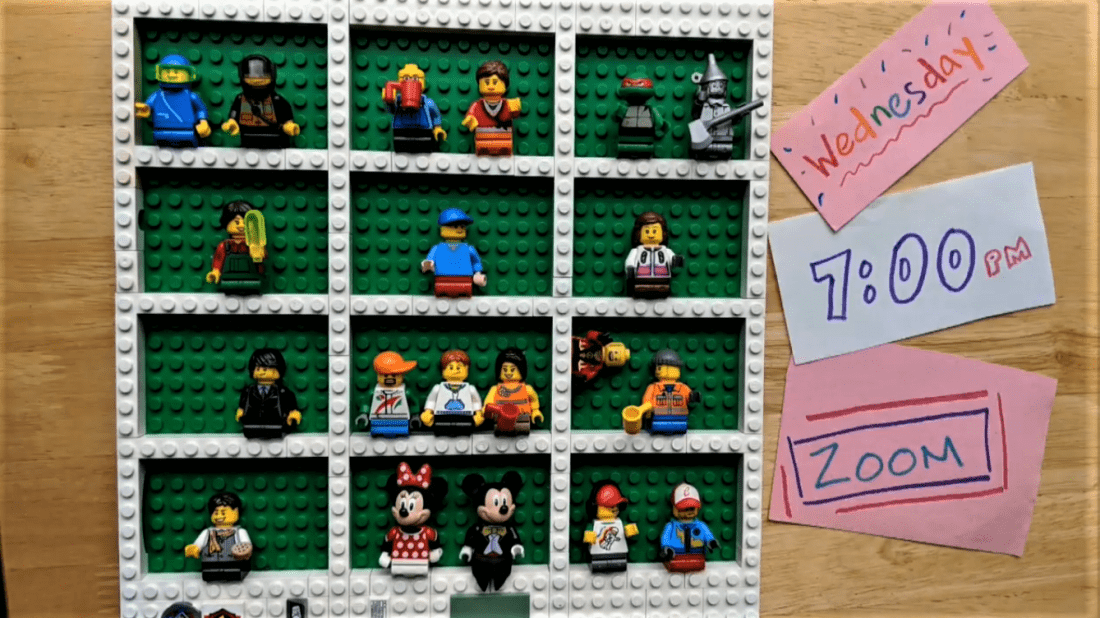Listen to this article
Listen to this article
Loading
Play
Pause
Options
0:00
-:--
1x
Playback Speed- 0.5
- 0.6
- 0.7
- 0.8
- 0.9
- 1
- 1.1
- 1.2
- 1.3
- 1.5
- 2
Audio Language
- English
- French
- German
- Italian
- Spanish
Open text
shelter responds to community needs in modesto. the berberian shelter provides various medical services, includingoptical care. photo by lawrance johnson the salvation army facility is expanding to better serve patrons. by laine hendricks. the salvation army berberian homeless shelter and transitional living center in downtown modesto, calif., is undergoing improvements and expanding services to better care for the community. the facility operates a 100-bed winter shelter, a 40-bed transitional living program, and a special needs shelter for 30 people. in may, it unveiled nearly $1 million in improvements at a public open house. the event—which honored churches and community groups that provide meals at the shelter and organizations who assisted with the upgrade—welcomed a number of local and state elected officials, and featured a testimony from a former shelter resident. most importantly, the open house allowed community members to see the inside of the newly renovated building. the improvements included building structure modifications, restoration of facility showers, the addition of dorms for those with special needs and a new activity room for transitional housing residents. additional security cameras were also installed. “as one of only two shelters in modesto, the homeless turn to us for shelter, a hot shower and something to eat,” said captain lisa smith, administrator of the facility. “we are able to provide those things and more, including case management, referrals, clothing and other needs, while treating them with respect and dignity.”. funding for the renovation was provided by the state of california, and does not need to be repaid if the salvation army maintains the homeless shelter and its services for a minimum of eight years. the berberian shelter features a medical clinic, built in 2011 by area service clubs to tackle some of the persistent health challenges that homeless men and women encounter: first aid and medical treatment, women’s health, and dental and optical care. the optical clinic began its services in 2011, and has supplied 25 clients with prescription glasses. the salvation army hopes to open the dental clinic by july; it will provide teeth extractions, fillings, exams and other basics for shelter residents. however, the dental clinic still needs supplies and equipment, dentists and other dental professionals to volunteer. “i have seen patients of mine break down because they had their teeth fixed and felt so good about how they looked,” said carrie ann pimentel, dental clinic coordinator at the shelter. “it makes me feel really good that i was able to help someone to feel better about themselves.”. the salvation army is also working on the health care and women’s health clinics, though specific opening dates have not been set.
Open context player
Close context player
Plays:-Audio plays count
shelter responds to community needs in modesto. the berberian shelter provides various medical services, includingoptical care. photo by lawrance johnson the salvation army facility is expanding to better serve patrons. by laine hendricks. the salvation army berberian homeless shelter and transitional living center in downtown modesto, calif., is undergoing improvements and expanding services to better care for the community. the facility operates a 100-bed winter shelter, a 40-bed transitional living program, and a special needs shelter for 30 people. in may, it unveiled nearly $1 million in improvements at a public open house. the event—which honored churches and community groups that provide meals at the shelter and organizations who assisted with the upgrade—welcomed a number of local and state elected officials, and featured a testimony from a former shelter resident. most importantly, the open house allowed community members to see the inside of the newly renovated building. the improvements included building structure modifications, restoration of facility showers, the addition of dorms for those with special needs and a new activity room for transitional housing residents. additional security cameras were also installed. “as one of only two shelters in modesto, the homeless turn to us for shelter, a hot shower and something to eat,” said captain lisa smith, administrator of the facility. “we are able to provide those things and more, including case management, referrals, clothing and other needs, while treating them with respect and dignity.”. funding for the renovation was provided by the state of california, and does not need to be repaid if the salvation army maintains the homeless shelter and its services for a minimum of eight years. the berberian shelter features a medical clinic, built in 2011 by area service clubs to tackle some of the persistent health challenges that homeless men and women encounter: first aid and medical treatment, women’s health, and dental and optical care. the optical clinic began its services in 2011, and has supplied 25 clients with prescription glasses. the salvation army hopes to open the dental clinic by july; it will provide teeth extractions, fillings, exams and other basics for shelter residents. however, the dental clinic still needs supplies and equipment, dentists and other dental professionals to volunteer. “i have seen patients of mine break down because they had their teeth fixed and felt so good about how they looked,” said carrie ann pimentel, dental clinic coordinator at the shelter. “it makes me feel really good that i was able to help someone to feel better about themselves.”. the salvation army is also working on the health care and women’s health clinics, though specific opening dates have not been set.
Listen to this article

















